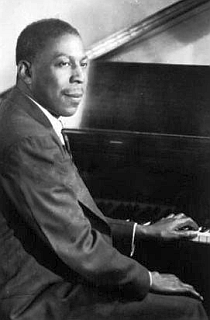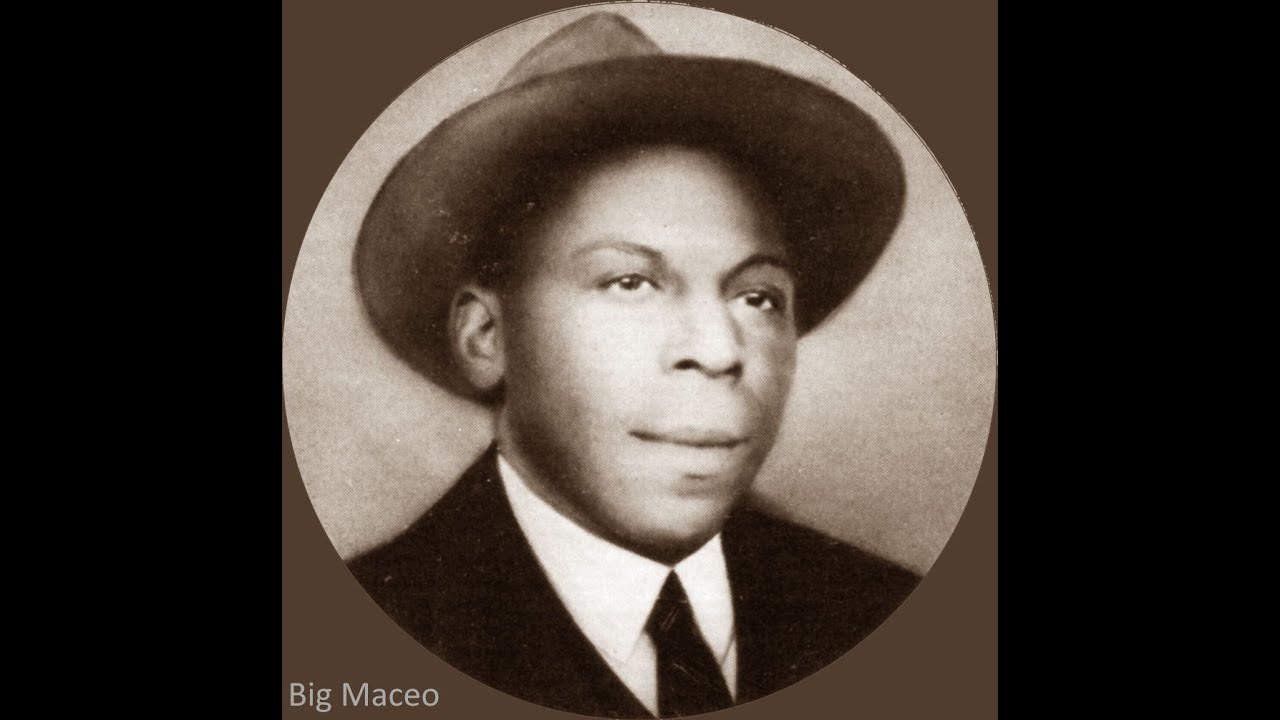Big Maceo Merriweather (born Major Merriweather on March 31, 1905, in Atlanta, Georgia, and passed away on February 23, 1953) is remembered as one of the most influential blues pianists and composers in the history of the genre. His powerful style and unique approach to the piano left an indelible mark on the Chicago blues scene and inspired generations of musicians.
Early Life
Big Maceo was born into a musically rich environment in Atlanta, Georgia, though he later moved to Detroit in 1924. Like many African Americans in the early 20th century, he relocated to the North as part of the Great Migration, seeking better opportunities. Detroit’s vibrant music scene provided Maceo with the perfect backdrop to hone his skills on the piano.
Though largely self-taught, Maceo developed a deep passion for blues music, drawing influence from the gospel and ragtime styles of the time. His playing stood out for its rhythmic intensity, combined with soulful melodies and a raw emotional depth that captured the essence of the blues.
Rise to Fame: The Chicago Years
Big Maceo’s career took off in the early 1940s when he moved to Chicago, the city where the blues flourished. It was in Chicago that Maceo met the iconic guitarist Tampa Red, a collaboration that would bring him into the spotlight. In 1941, Maceo recorded his first and most famous track, “Worried Life Blues,” with Tampa Red. This song became an instant hit, eventually becoming one of the most enduring blues standards of all time.
The song’s heartfelt lyrics and Maceo’s deep, resonant voice resonated with listeners, while his boogie-woogie piano playing, marked by its forceful left-hand bass and expressive right-hand riffs, showcased his technical prowess. “Worried Life Blues” has been covered by many musicians over the years and remains a staple of the blues genre.
Signature Sound and Influence
Maceo’s music was distinguished by its heavy, thumping piano bass lines and melodic flourishes, which influenced countless blues pianists and helped shape the boogie-woogie style. His recordings with Bluebird Records, where he worked alongside Tampa Red and Big Bill Broonzy, became some of the defining records of the Chicago blues sound in the 1940s.
His other notable songs include “Chicago Breakdown,” “Texas Stomp,” and “County Jail Blues.” Each song reflected his deep understanding of the blues tradition and his ability to craft songs that connected emotionally with audiences.
Personal Struggles and Later Life
Despite his success, Big Maceo’s life was fraught with hardships. In 1946, he suffered a debilitating stroke that partially paralyzed his right hand, drastically limiting his ability to play piano. Though he continued to perform and record, the stroke marked the beginning of the decline in his career.
After his stroke, he teamed up with the likes of Little Johnny Jones, a promising young pianist who played the right-hand parts for Maceo during performances. Maceo’s resilience in the face of adversity demonstrated his deep love for the blues, but his health continued to decline in the years that followed.
By the early 1950s, Maceo’s career had slowed significantly. He passed away on February 23, 1953, in Chicago, Illinois, after suffering a second stroke. Though his career was tragically cut short, his impact on the blues endured long after his death.
Legacy
Big Maceo Merriweather’s contributions to the blues cannot be overstated. He was posthumously inducted into the Blues Hall of Fame in 1983, cementing his place as one of the all-time greats in the genre. His influence is still heard in the work of blues and rock musicians who followed, including Otis Spann, Pinetop Perkins, and even some early rock ‘n’ roll pianists.
His song “Worried Life Blues” has been honored by the Grammy Hall of Fame, and his recordings remain a vital part of blues history, appreciated by fans of the genre worldwide.
Though he faced many personal struggles, Big Maceo’s music remains a testament to the power of the blues. His legacy lives on, not just in the songs he recorded, but in the spirit of every musician who has been inspired by his powerful playing and emotive voice.
Big Maceo Merriweather is truly one of the unsung heroes of blues piano, and his enduring influence continues to shape the music we hear today.


Comments are closed